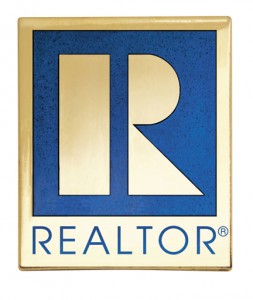When selling property, brokers and agents arrange for title searches to verify ownership and for meetings between buyers and sellers during which they agree to the details of the transactions and in a final meeting, the new owners take possession of the property. They also may help to arrange favorable financing from a lender for the prospective buyer; often, this makes the difference between success and failure in closing a sale. In some cases, brokers and agents assume primary responsibility for closing sales; in others, lawyers or lenders do.
Duties to Sellers
Agents and brokers spend a significant amount of time looking for properties to sell. They obtain listings---agreements by owners to place properties for sale with the firm. When listing a property for sale, agents and brokers compare the listed property with similar properties that recently sold, in order to determine a competitive market price for the property. Following the sale of the property, both the agent who sold it and the agent who obtained the listing receive a portion of the commission. Thus, agents who sell a property that they themselves have listed can increase their commission.
The listing firm and its agents must
- promote the sellers' best interests
- be loyal to the seller
- follow the sellers' lawful instructions
- provide the seller with all material facts that could influence your decisions
- use reasonable skill, care and diligence, and
- account for all monies they handle for the seller.
Once you have signed the listing agreement, the firm and its agents may not give any confidential information about you to prospective buyers or their agents without your permission so long as they represent you.
Duties to Buyers
If the real estate firm and its agents represent you, they must
- promote the buyers' best interests
- be loyal to the buyer
- follow the buyers' lawful instructions
- provide the buyer with all material facts that could influence your decisions
- use reasonable skill, care and diligence, and
- account for all monies handled for the buyer.
Before showing residential properties to potential buyers, agents meet with them to get an idea of the type of home the buyers would like. In this prequalifying phase, the agent determines how much the buyers can afford to spend. In addition, the agent and the buyer usually sign a loyalty contract, which states that the agent will be the only one to show houses to the buyer. An agent or broker then generates lists of properties for sale, their location and description, and available sources of financing. In some cases, agents and brokers use computers to give buyers a virtual tour of properties that interest them.
Agents may meet several times with prospective buyers to discuss and visit available properties. Agents identify and emphasize the most pertinent selling points. To a young family looking for a house, for example, they may emphasize the convenient floor plan, the area's low crime rate, and the proximity to schools and shopping. To a potential investor, they may point out the tax advantages of owning a rental property and the ease of finding a renter. If bargaining over price becomes necessary, agents must follow their client's instructions carefully and may have to present counteroffers to get the best possible price.
Once the buyer and seller have signed a contract, the real estate broker or agent must make sure that all special terms of the contract are met before the closing date. The agent must make sure that any legally mandated or agreed-upon inspections, such as termite and radon inspections, take place. In addition, if the seller agrees to any repairs, the broker or agent ensures they are made. Increasingly, brokers and agents are handling environmental problems as well, by making sure that the properties they sell meet environmental regulations. For example, they may be responsible for dealing with lead paint on the walls. Loan officers, attorneys, or other people handle many details, but the agent must ensure that they are carried out.
Most real estate brokers and sales agents sell residential property. A small number---usually employed in large or specialized firms---sell commercial, industrial, agricultural, or other types of real estate. Every specialty requires knowledge of that particular type of property and clientele. Selling or leasing business property requires an understanding of leasing practices, business trends, and the location of the property. Agents who sell or lease industrial properties must know about the region's transportation, utilities, and labor supply. Whatever the type of property, the agent or broker must know how to meet the client's particular requirements.
Brokers and agents do the same type of work, but brokers are licensed to manage their own real estate businesses. Agents must work with a broker. They usually provide their services to a licensed real estate broker on a contract basis. In return, the broker pays the agent a portion of the commission earned from the agent's sale of the property. Brokers, as independent businesspeople, often sell real estate owned by others; they also may rent or manage properties for a fee.











 A real estate agent is a professional licensed to buy, sell and manage real estate for a fee on the behalf of others. Not all real estate agents are REALTORS. A broker is a real estate agent who has reached a higher educational standard and who accepts certain additional responsibilities commensurate with this level of licensing. The term "Realtor" is a registered collective membership mark that identifies a real estate professional who is a member of the National Association of Realtors.
A real estate agent or broker who joins the National Association of Realtors is a Realtor. The National Association of Realtors (NAR) claims to be world's largest professional association. The single biggest distinction between a real estate agent and a Realtor is that all Realtors agree to abide by a strict
A real estate agent is a professional licensed to buy, sell and manage real estate for a fee on the behalf of others. Not all real estate agents are REALTORS. A broker is a real estate agent who has reached a higher educational standard and who accepts certain additional responsibilities commensurate with this level of licensing. The term "Realtor" is a registered collective membership mark that identifies a real estate professional who is a member of the National Association of Realtors.
A real estate agent or broker who joins the National Association of Realtors is a Realtor. The National Association of Realtors (NAR) claims to be world's largest professional association. The single biggest distinction between a real estate agent and a Realtor is that all Realtors agree to abide by a strict 
-300x225.jpg)




